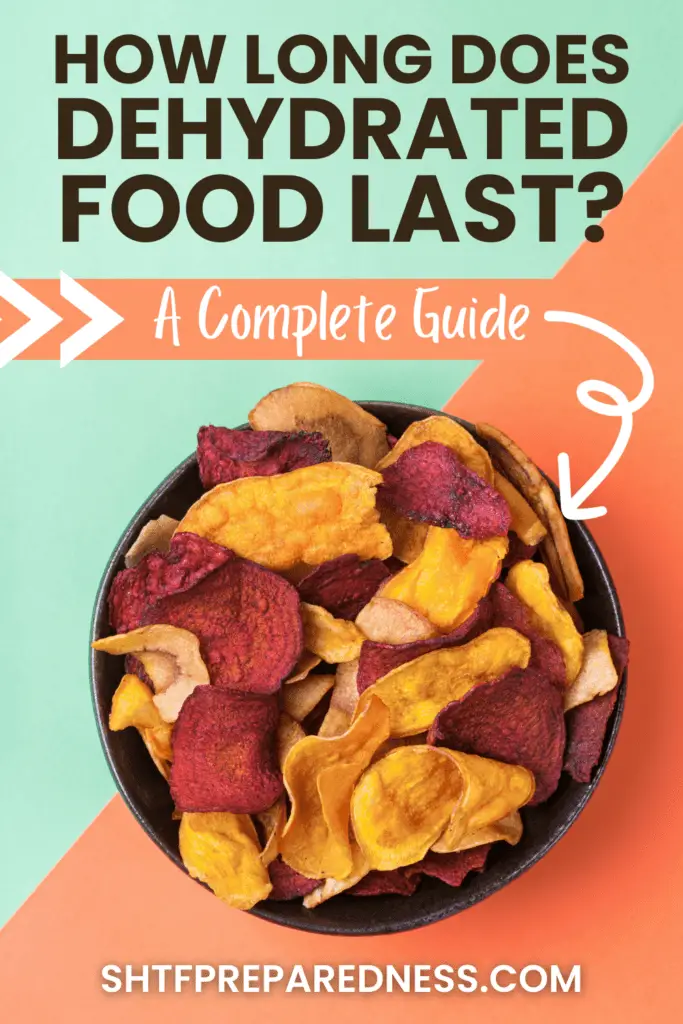Dehydrated foods are becoming more and more popular among many people. If you are looking for convenient and durable options, you must buy freeze-dried food.
Dehydration is a process that removes the water content from food. It makes them lighter, more compact, and resistant to spoilage. People have used this method for centuries to preserve foods, and it hasn’t lost its relevance today.
One of the main advantages of dehydrated foods is their extended shelf life. Unlike fresh foods or other perishable goods, dehydrated foods can last long without refrigeration or freezing.
However, the shelf life of dry foods can vary. It all depends on several factors. So how long does dehydrated food last?
In this article, we will take a closer look at dehydrated foods and their shelf life. We will discuss what factors can affect these foods’ rapid deterioration rate. You will also learn what you can do to prolong the life of your foods.
If you are a hiker, hoarder, or just someone who wants to stock up on non-perishable foods? So, this article will give you valuable information about dehydrated foods. Don’t waste your time anymore. Read on!
Factors That Can Affect the Rapid Deterioration of Dehydrated Foods
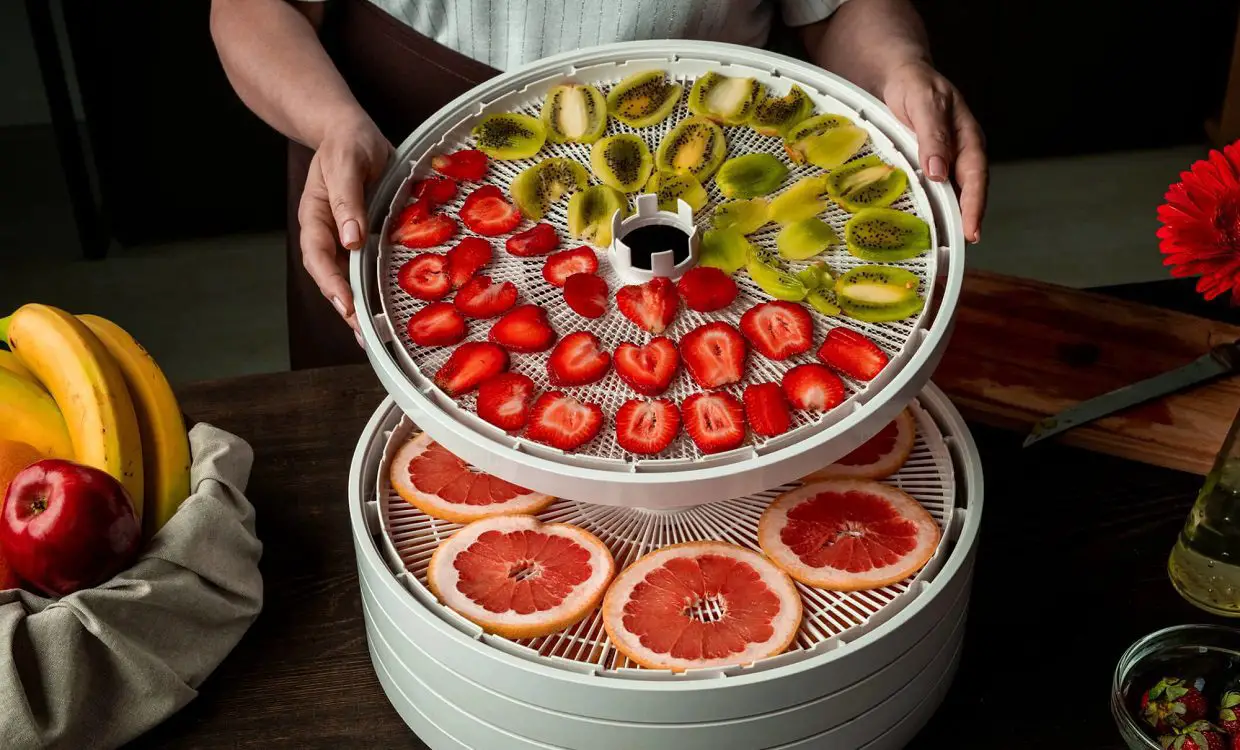
Yes, dehydrated foods can go bad, just like any other food. Of course, the dehydration process helps to extend the shelf life of foods.
It does this by removing moisture and inhibiting the growth of bacteria. But there are still factors that can cause food to spoil.
Let’s take a closer look at the factors that affect how long dehydrated food last:
Moisture
Moisture is a significant factor in how long dehydrated food lasts. It can contribute to the rapid deterioration of dehydrated foods.
For example, you expose dehydrated foods to moisture. It can create an environment conducive to bacteria, yeast, and mold growth.
It leads to spoilage. It can result in off-odors, discoloration, and clumping of the food. Even small amounts of moisture can quickly spoil dehydrated foods.
So you will end up with foods that are not safe to eat. Thus, it is important to handle dehydrated foods and store them in a way that avoids exposure to moisture. This way, you can extend their shelf life.
Exposure to Air
Exposure to air is an important factor. It can contribute to the rapid deterioration of freeze-dried food. Oxygen in the air can react with the fats and oils in dehydrated foods, leading to rancidity and spoilage.
In addition, exposure to air can lead to moisture in foods. And as we wrote above, this leads to the growth of:
- Bacteria
- Yeast
- Molds
All of which can cause discoloration, bad odor, and clumping. Even a little exposure to air can quickly ruin dehydrated foods. It will make them unsafe for consumption.
Therefore, processing and storing dehydrated foods in airtight containers is very important. This way, you can avoid exposure to air and extend their shelf life.
Temperature
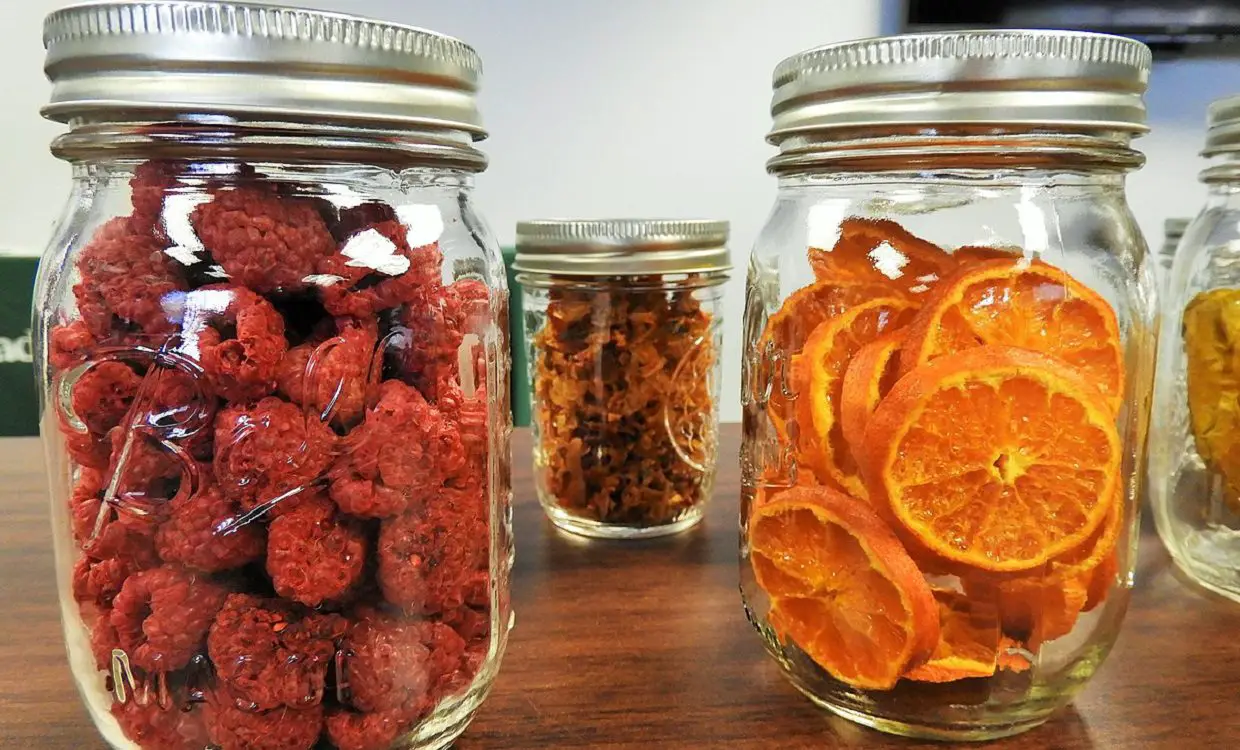
Temperature is also an important factor. All because it can contribute to the rapid degradation of dehydrated food.
High temperatures can cause dehydrated foods to oxidize and break down. It leads to rancidity, off-flavor, and loss of nutritional value. On the other hand, low temperatures can cause foods to become too dry and brittle.
It will lead to a loss of texture and flavor. Exposure to extreme temperatures can also cause dehydrated foods to spoil faster. It makes them unsafe for consumption.
It is important to store dehydrated foods at a constant and moderate temperature. This way, you can avoid rapid spoilage and maintain their quality.
Light
Light is an important factor. And it, too, can contribute to the rapid deterioration of food. Dehydrated foods can break down and spoil when exposed to light.
It leads to an unpleasant taste, discoloration, and loss of nutritional value. Light can also promote the growth of bacteria, yeast, and mold.
These organisms can spoil food. Then you have to change the answer to how long dehydrated food lasts. Even a small amount of light can cause rapid spoilage.
Therefore, you must store dehydrated foods in a dark, cool place. This way, you can avoid exposure to light and extend their shelf life.
Quality of the Original Food Product
The quality of the original food product is also an important factor. It can extremely affect the rapid deterioration of dehydrated foods.
Are your products used for dewatering of poor quality? Then your dewatered product will be of low quality, too.
Accordingly, it will not last as long. Also, you may not have prepared the food properly before dehydrating. It can then lead to uneven dehydration. Which means further you will get spoilage.
That’s why it’s important to use high-quality, fresh ingredients. If you dehydrate them yourself, you must properly prepare them before dehydration so that the resulting dehydrated product is of high quality and has a long shelf life.
Contamination During Processing or Packaging
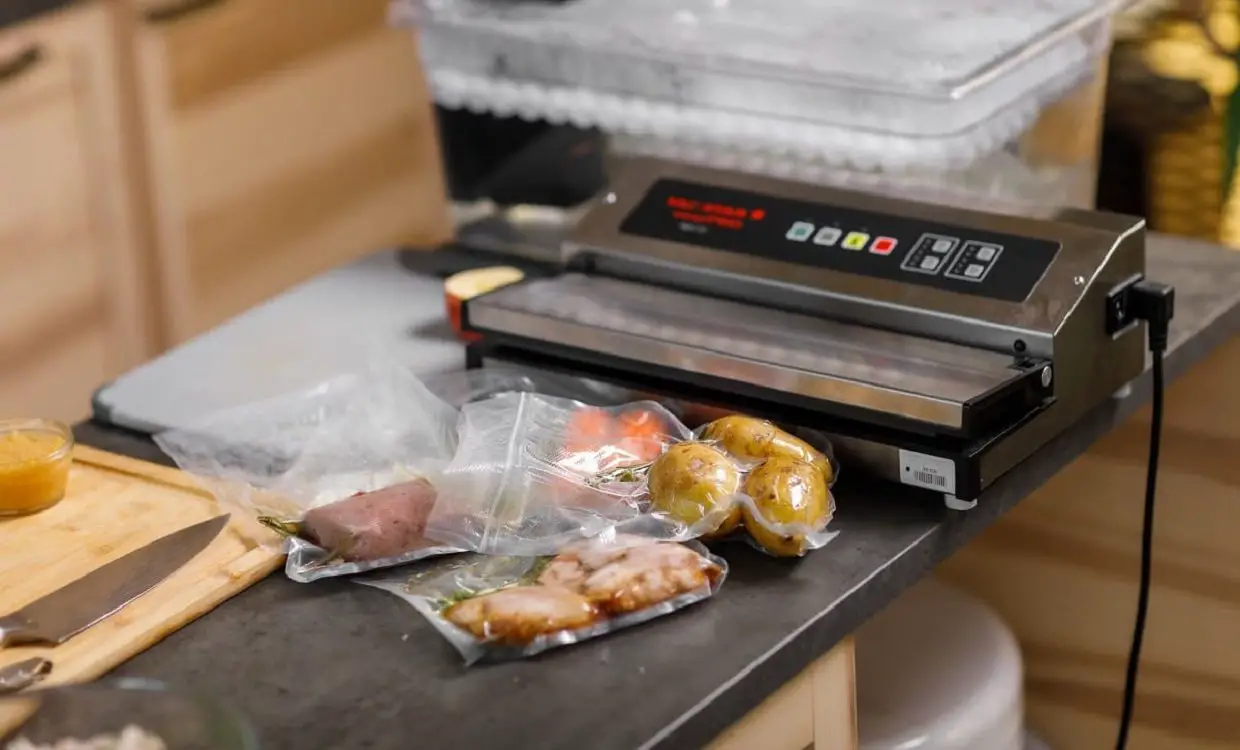
Contamination is an important factor. Do you use high-quality fresh ingredients?
Maybe, but contamination can occur during processing and packaging. It can lead to the spoilage of dehydrated food. Microbial contaminants are often found in foods due to poor hygiene practices.
They cause foodborne illness or food spoilage. It is important to maintain a high level of hygiene during processing and packaging. This way, you can avoid contamination and extend the shelf life of the dehydrated product.
Storage Conditions
Storage conditions are an important factor. If you store food improperly, it can lead to the growth of undesirable microorganisms.
Of course, this causes spoilage and makes foods unsafe to eat. The ideal way to store it is in airtight containers away from light and heat sources.
Storing at a constant temperature will also help preserve their quality longer. Besides, storing them in a dry and cool place is important.
So, make sure you choose the right storage containers. Follow proper storage procedures for dehydrated foods to maximize their shelf life.
Length of Time Since Dehydration
The length of time since dehydration is also important. It determines how long dehydrated foods last.
Generally, the shelf life of dehydrated products can range from a few months to several years. Of course, it will depend on the type of food and its storage conditions.
If you store them properly, they can last up to 3-5 years or more. But, if not stored correctly, the quality will deteriorate faster, and the shelf life will become shorter. So ensure you know how long your product has been stored before consuming it.
Handling and Transportation Practices
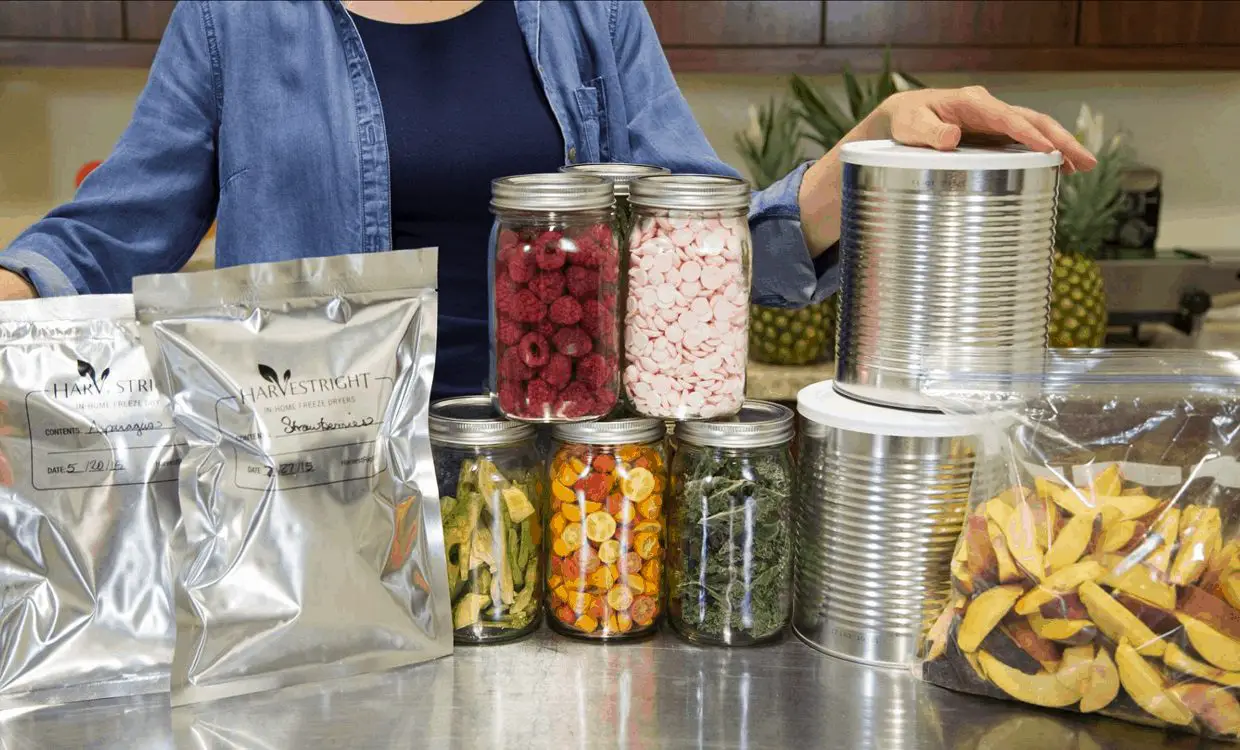
Handling and transportation practices are other important factors in how long dehydrated food lasts. Careless handling during transportation can lead to damage.
Improper storage during transportation can also lead to damage. You can get crushed foods and get exposed to moisture or air. It causes spoilage and shortens the shelf life of the product.
Also, if the products have not been properly sealed, they can become contaminated. It will lead to spoilage and potential health risks.
Therefore, it is very important to follow proper handling and transportation rules. This way, you can protect the dehydrated products from damage and contamination.
Chemical Preservatives or Additives
Chemical preservatives or additives can also affect the shelf life of freeze-dried food. It can extend their shelf life by inhibiting microbial growth and oxidation that cause spoilage.
However, using only approved chemical preservatives for food applications is important. Otherwise, these chemicals may be toxic and could lead to health risks.
Always check the safety of these additives before using them in food products.
Insects and Rodents
Even well-packed products can be contaminated by insects and rodents. It leads to spoilage and potential health risks.
Insects and rodents can chew through the packaging. They create holes through which moisture and air get inside, causing spoilage.
But that’s the least of it. If rodents have gotten in, they can contaminate it with their droppings, which may contain dangerous bacteria.
So ensure you store your dehydrated products in a secured place away from rodents and insects to avoid contamination and extend their shelf life.
How to Prolong the Life of Your Products
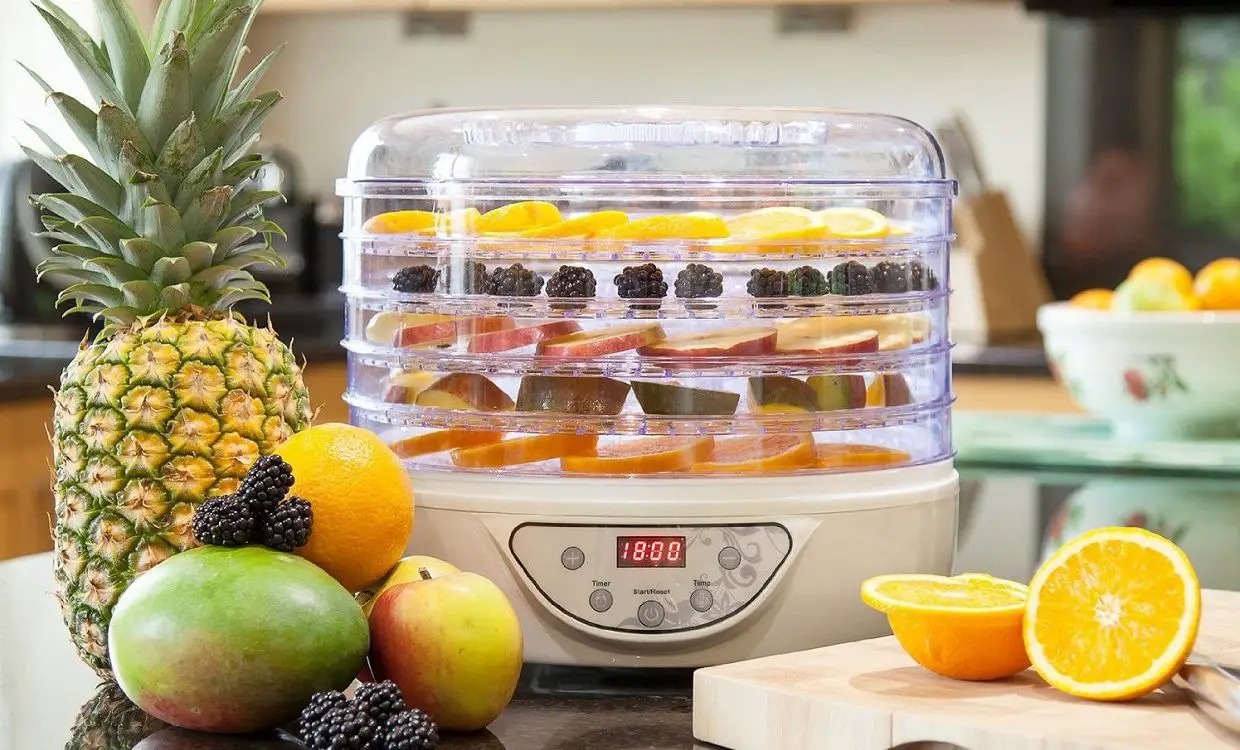
Freeze-dried foods are a great way to extend their shelf life. You can preserve the nutrients in your food.
But even properly dehydrated foods can spoil quickly. And that’s only because you’re not storing and handling your food correctly. We’ve put together some tips on how to extend the shelf life of dehydrated foods.
Then how long does dehydrated food last will be longer:
Properly Dehydrate Foods
So, what do you think is the first step in prolonging the life of dehydrated foods? It is to ensure that they are properly dehydrated.
It means ensuring the foods are completely dry and have no moisture. You can check this by trying to bend the product. If it bends rather than breaks, it means it still contains moisture. It needs more time to dry.
Store in a Cool, Dry, and Dark Place
Once your dehydrated foods are ready, storing them in a cool, dry, and dark place is essential. Exposure to heat, moisture, and light can cause your dehydrated foods to spoil quickly.
Choose a pantry or closet away from direct sunlight and heat sources. It is an ideal place to store dehydrated foods.
Use Airtight Containers or Vacuum-sealed Bags with Moisture Absorbers
Use airtight containers or vacuum bags with moisture absorbers. It is another way to extend the shelf life of freeze-dried food. Oxygen and moisture can lead to bacterial growth, which can cause food to spoil.
Silica gel bags or oxygen absorbers can help keep dehydrated foods fresher for longer. You will get this by removing excess moisture and oxygen.
Label and Date Your Dehydrated Foods
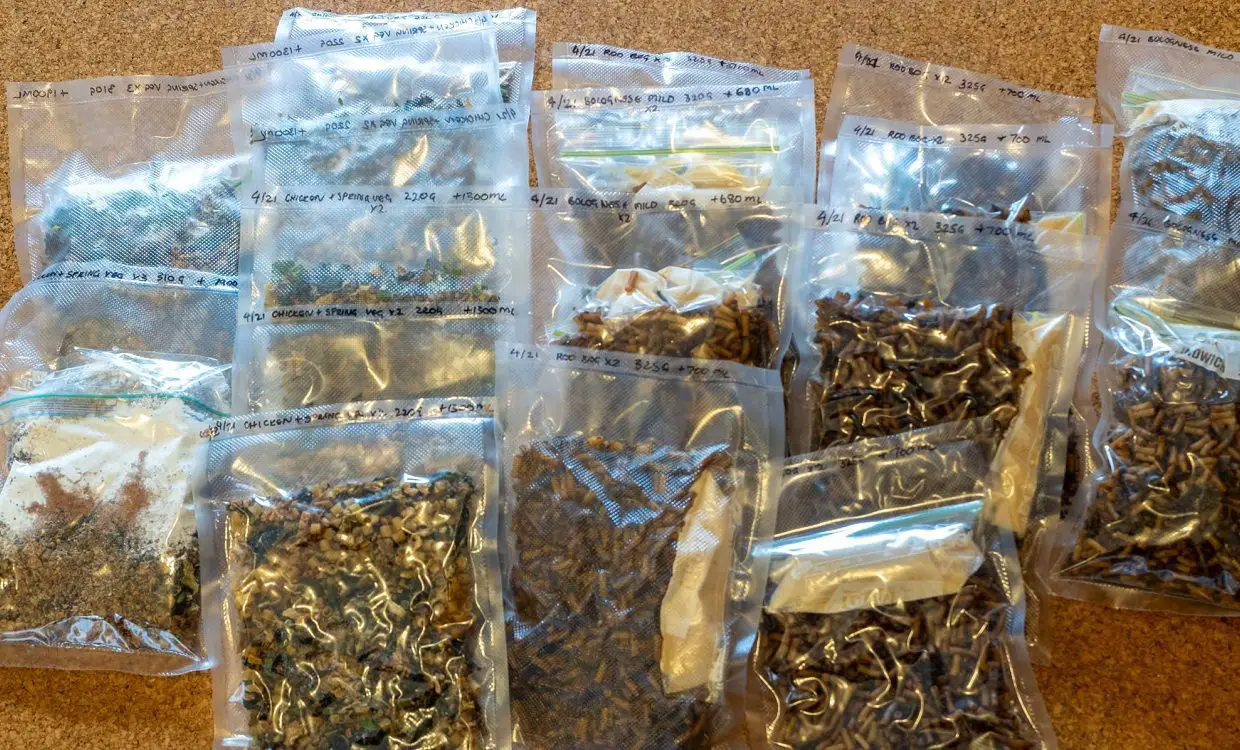
It’s essential to label and date your dehydrated foods to keep track of their shelf life. Write down the name of the food, the date it was dehydrated, and the best-by date on the container.
It will help you keep track of when your food needs to be used and avoid the risk of consuming spoiled food.
Check For Signs of Spoilage
Periodically check dehydrated foods for signs of spoilage. Pay attention to factors such as:
- Unpleasant odor
- Discoloration
- Clumping
Do you notice at least one of these signs? Then you should immediately throw the product away. Consuming spoiled food can lead to food-borne illnesses. All of them can be dangerous and even deadly.
Rehydrate Properly
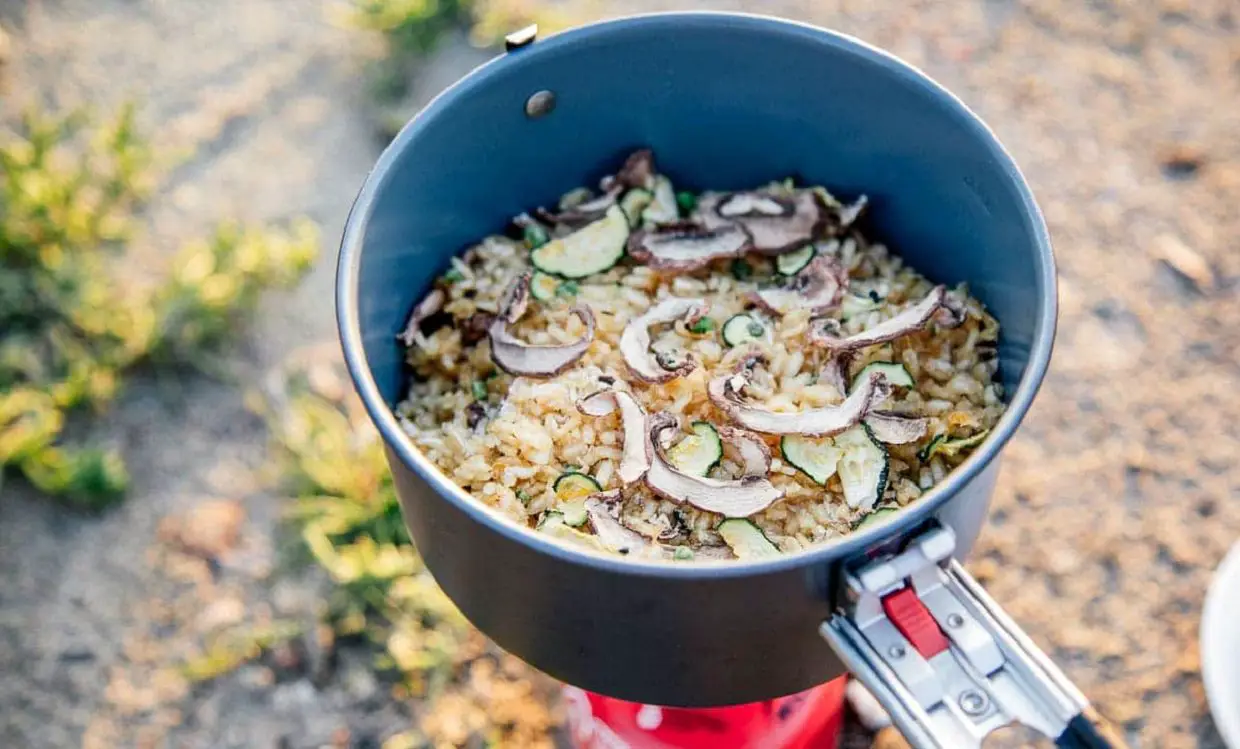
Finally, it’s essential to rehydrate your dehydrated foods properly before consuming them.
Follow the instructions for rehydration provided with the food. Be sure to dehydrate your foods properly. This way, you ensure they have the right texture and taste and are safe to eat.
We recommend that you follow these simple tips. This way, you can extend the life of dehydrated foods and ensure that they are safe to eat. Then you can answer exactly how long dehydrated food lasts.
With proper storage, processing, and rehydration techniques, you can expect amazing results! You will find that your dehydrated foods will last for up to 12 months. Then you will be able to enjoy their taste much longer!
Conclusion
Dehydrated foods can extend their shelf life significantly when stored and handled correctly.
Proper dehydration, storing in a cool, dry, and dark place, and using airtight containers or vacuum-sealed bags with moisture absorbers are some ways to prolong the shelf life of your food products.
Also, it’s important to label and date dehydrated foods and check for signs of spoilage. Finally, make sure to rehydrate properly before consuming them.
With all these tips, you will know exactly how long dehydrated food lasts. Lastly, remember proper storage is key to extending the shelf life of your dehydrated food products.
So, don’t miss your chance to enjoy the deliciousness of dehydrated food. Just follow these tips and get the most out of your food products!
Reference Articles:
